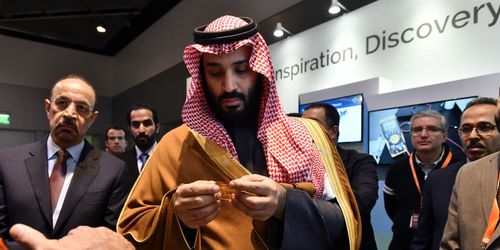Saudi Arabia has developed a Uranium processing facility at Al Ula, a remote place in the Medina region of north-western Saudi Arabia. It has raised concerns in the western world about the potential desire of the Saudis to develop a nuclear weapon. But such concerns may seem unrealistic given that Saudi Arabia had acceded to the nuclear non-proliferation treaty in 1988 and it belongs to the US-backed group of countries, the Gulf cooperation council. The kingdom of Saudi Arabia has not publicly accepted the presence of this facility. In 2018, the crown prince of Saudi Arabia- Mohammed bin Salman had pledged that if Iran develops a nuclear weapon, then Saudis would soon follow the suit. The knowledge of this uranium processing facility along with this 2018 pledge by the Saudi prince has raised concerns in the congress circles in the USA. An important aspect of the facility is that while the energy ministry of the kingdom of Saudi Arabia has denied building a uranium ore processing facility but has acknowledged having given contracts to Chinese entities for Uranium exploration in the country. China Nuclear engineering group corporation and China National nuclear corporation have signed agreements with Saudi Arabia to cooperate in the development of peaceful nuclear energy. These agreements were signed as a follow up to the 2012 Riyadh-Beijing pact on nuclear energy.
The facility is suspected to be for processing Yellowcake, a yellow powder like compound which is an important step in Uranium processing for nuclear fuel or nuclear weapon. Various compounds of uranium like sulfates, peroxides, oxides, para uranate, and diuranate are classified under the identification of Yellowcake. Generally, the uranium isotope in the yellowcake is almost more than 99% U-238 with low radioactivity and a long half-life.
A 2019 US congressional committee report had suspected that there were attempts by US-based companies to offer nuclear technologies to Saudi Arabia without the safeguards under the nuclear non-proliferation treaty or the IAEA. US house of representatives was alerted by a whistle-blower in February 2019 about such transactions between US companies and Saudi Arabia. This issue becomes all the more sensitive from the point of view of the USA as it reminds them of the Weapon of Mass Destruction episode when Iraq was accused of purchasing yellowcake from Niger, even though inputs from the intelligence community denied it. The western powers should trade the waters carefully before jumping to any far-fetched conclusion.





